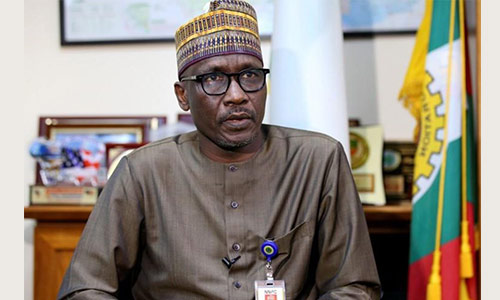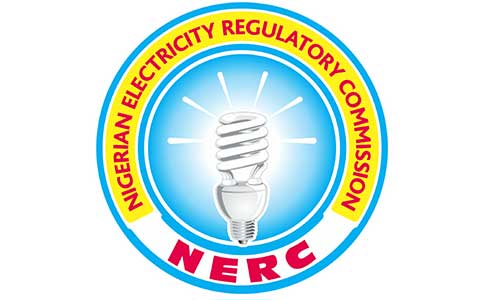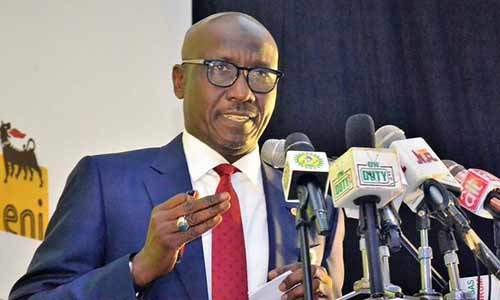OIL & GAS SECTOR INSIGHT 10/02/2022
Adulterated Fuel: Kyari Names MRS, Emadeb-Consortium, Oando, Duke Oil As Culprits

The Nigerian National Company Limited (NNPC) yesterday stated that its investigation has revealed the presence of Methanol in four petrol cargoes imported by MRS, Emadeb/Hyde/AY Maikifi/Brittania-U Consortium, Oando and Duke Oil.
Group Managing Director of NNPC, Mallam Mele Kyari, who disclosed this during a media briefing yesterday, however said he has since ordered the holding back of all the affected products in transit (both truck & marine).
It was also gathered yesterday that the NNPC has asked oil trading firms to embark on emergency supply of petrol to replace cargoes that were rejected because of their poor quality, Reuters quoted two sources as having disclosed yesterday.
Apparently disturbed by the development, the federal government yesterday ordered investigation into the bad fuel that had damaged the engines of some vehicles.
In addition to disrupting the country’s fuel supply chain, the product which led to the damage of several cars, the NNPC disclosed, was imported from Antwerp in Belgium.
Speaking in Abuja, Kyari, argued that petrol brought into Nigeria usually does not include the test for the level of methanol content.
The NNPC helmsman maintained that cargoes’ quality certificates issued at the loading port in Belgium, by AmSpec Belgium, indicated that the product complied with Nigerian specification.
Furthermore, he said the NNPC quality inspectors including GMO, SGS, GeoChem and G&G conducted tests before discharge, which showed that the cargo also met the country’s standard.
“As a standard practice for all PMS import to Nigeria, the cargoes were equally certified by inspection agent appointed by the Midstream and Downstream Petroleum Regulatory Authority (NMDPRA) has met Nigerian specification.
“It is important to note that the usual quality inspection protocol employed in both the load port in Belgium and our discharge ports in Nigeria do not include the test for per cent of methanol content and therefore the additive was not detected by our quality inspectors,” he said.
Kyari disclosed that the NNPC had ordered the quarantine of all un-evacuated volumes of the contaminated fuel that led to the disruption of the petrol distribution value chain, in order to prevent further distribution.
He stressed that the NNPC and other stakeholders were making serious efforts to resolve issues generated by the supply and discharge of methanol blended product in some Nigerian depots.
Kyari noted that the NNPC first received a report on January 20, 2022, from its quality inspector of the presence of “emulsion particles” in petrol cargoes shipped to Nigeria from the European country.
He added: “In order to prevent the distribution of the petrol, we have ordered the quarantine of all un-evacuated volumes and the holding back of all the affected products in transit (both truck & marine).
“All defaulting suppliers have been put on notice for remedial actions and NNPC will work with the authority to take further necessary actions in line with subsisting regulations.
“NNPC wishes to reassure Nigerians that we are currently sourcing additional cargoes to ensure product sufficiency.”
According to him, the NNPC has ordered that all the affected products in transit (both truck & marine), should be withheld.
But the NNPC GMD’s explanation ran contrary to an earlier press statement released by MRS, where the company denied culpability.
In its statement MRS had stated that it remains a responsible corporate citizen and will not be involved in the purchase, importation, distribution or marketing of substandard petroleum products in the country, coming short of directly accusing the NNPC of complicity.
“Due to current subsidy regime, NNPC is the sole supplier of all PMS in Nigeria. Consequently, the NNPC through their trading arm Duke Oil, supplied a cargo of PMS purchased from international trader Litasco and delivered it with Motor Tanker (MT) Nord Gainer. This vessel discharged in Apapa between the 24th and 30th of January, 2022,” it had alleged.
As one of the beneficiaries, MRS said it received the product in its depot and distributed the product to only eight of its stations in Lagos.
The company described the allegation trending at the time as mischievous, false and untrue.
But the NNPC boss maintained that the methanol blended petrol was imported into the country by the suppliers, including MRS, through its Direct-Sales-Direct-Purchase arrangement.
The arrangement allows the national oil company to deliver monthly crude oil lifting on Free on Board (FOB) basis to suppliers who in return are supposed to deliver petroleum products of Nigerian standard specification to NNPC.
The petroleum products delivered are usually equivalent in value to the crude oil received from NNPC subject to the general terms and conditions as advised.
But according to the NNPC, the companies that supplied the methanol blended petrol included MRS which made the importation through a vessel named MT Bow Pioneer.
He said while Emadeb/Hyde/AY Maikifi/Brittania-U Consortium brought in the fuel through a vessel identified as MT Tom Hilde, Oando allegedly brought in the product through a vessel named MT Elka Apollon, while Duke Oil came through MT Nord Gainer vessel.
Fuel queues had been building in Lagos and the Federal Capital Territory (FCT), Abuja, due to fuel shortages caused by the withdrawal of the contaminated petrol from the market. But NNPC was said to be seeking thousands of tonnes of the product to ameliorate the situation, the report said.
The Nigerian Midstream and Downstream Petroleum Regulatory Authority (NMDPRA) had said it found fuel with methanol above national specifications in the supply chain and removed the fuel from circulation. Although methanol, in small amounts, is a regular gasoline additive, the regulator said the supplier of the off-specification gasoline was known but did not name the firm.
Nigeria depends almost entirely on imports to meet its domestic fuel needs after many failed attempts to revamp the dilapidated refineries, with daily consumption exceeding 60 million litres.
NNPC handles nearly all the imports through crude-for-fuel contracts, known as Direct Sale, direct Purchase (DSDP), with consortia of local and foreign oil firms.
Each consortium receives 20,000 barrels per day (bpd) of crude oil in exchange for products, making the combined total about 320,000 bpd of Nigeria’s output.
Nigerians feel that cheap fuel is one of the few benefits the average Nigerian gets from the government, which sets price caps at the pump through a controversial and patchy subsidy scheme.
Meanwhile, Chief Executive Officer of NMDPRA, Farouk Ahmed, yesterday stated that NNPC had received delivery of 300 million litres of petrol to close the supply gap created in the country by the withdrawal of the off-spec petrol.
Speaking in Lagos, when he met with marketers in a bid to raise distribution and remove the substandard fuel from supply chain, Ahmed said the 300 million litres arrived through six vessels ordered by NNPC. He noted that with the latest delivery, the fuel queues being witnessed in the country should disappear by Friday.
Ahmed said, “Today, I am happy to say that loading has been going on in most of the depots because we have been able to identify, isolate and quarantine the limited amount of gasoline that was affected by the methanol volume that was discovered.
“We have vessels that have arrived in the country recently. At least six arrived in the last few days, ordered by the NNPC, carrying a total volume of close to 300 million litres, just to close the gap created by those vessels we have withdrawn from the system.”
In addition, Ahmed disclosed that there was a 9,000-metric tonne vessel that was being discharged at the Apapa Port to major marketers, including OVH, TotalEnergies, 11 Plc, Conoil, and Ardova Plc.
According to him, as soon as the vessels complete discharging and start pushing products to oil marketers, the fuel queues in Lagos should fully disappear by Friday.
“So, once these vessels complete discharging and start pushing the products to marketers, I believe Lagos will be cleared by Friday,” Ahmed stated.
He added, “We have got that assurance from the marketers. Also, most of these vessels will be providing volumes to most of the key members of DAPPMAN.”
But the NMDPRA boss stated that the country currently had petrol that could last for 20 days, 10 days short of the usual 30-day reserve.
He said, “Our ideal days of sufficiency is 30 but this happened because of the concern that made us withdraw the vessels, which created the gap in our 30 days sufficiency.
“Again, with aggressive importation by the NNPC, this will be closed in a few days, according to the data we got from the NNPC’s import programme.
“Loading is also on-going in most of the depots that have confirmed spec products; so, there is no need for panic. Hopefully, by tomorrow, Lagos will be cleared.”
The regulatory agency said it was also working to address the challenge thrown up by the importation of substandard petrol into the country.
Other attendees at the meeting included top officials of NNPC, Major Oil Marketers Association of Nigeria (MOMAN), and members of the Depots and Petroleum Products Marketers Association of Nigeria (DAPPMAN).



